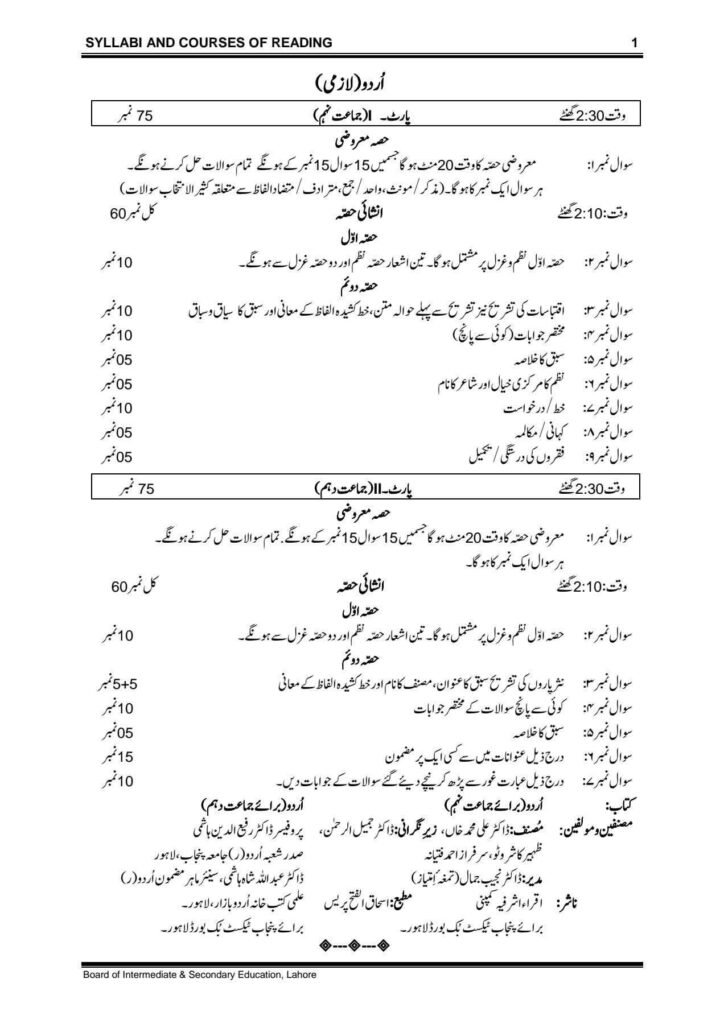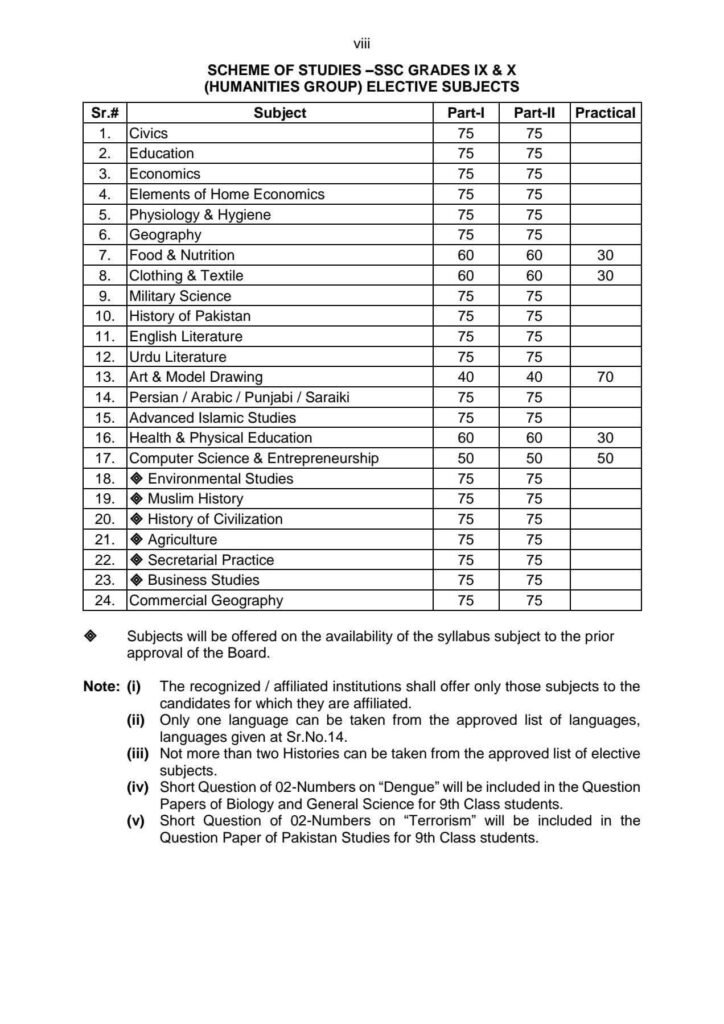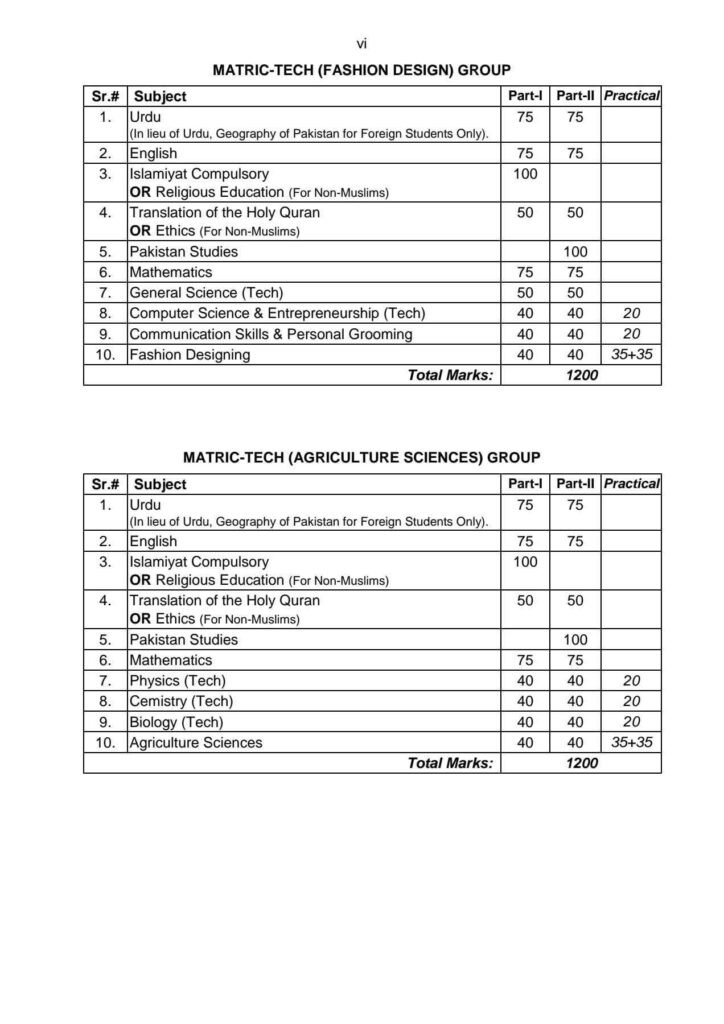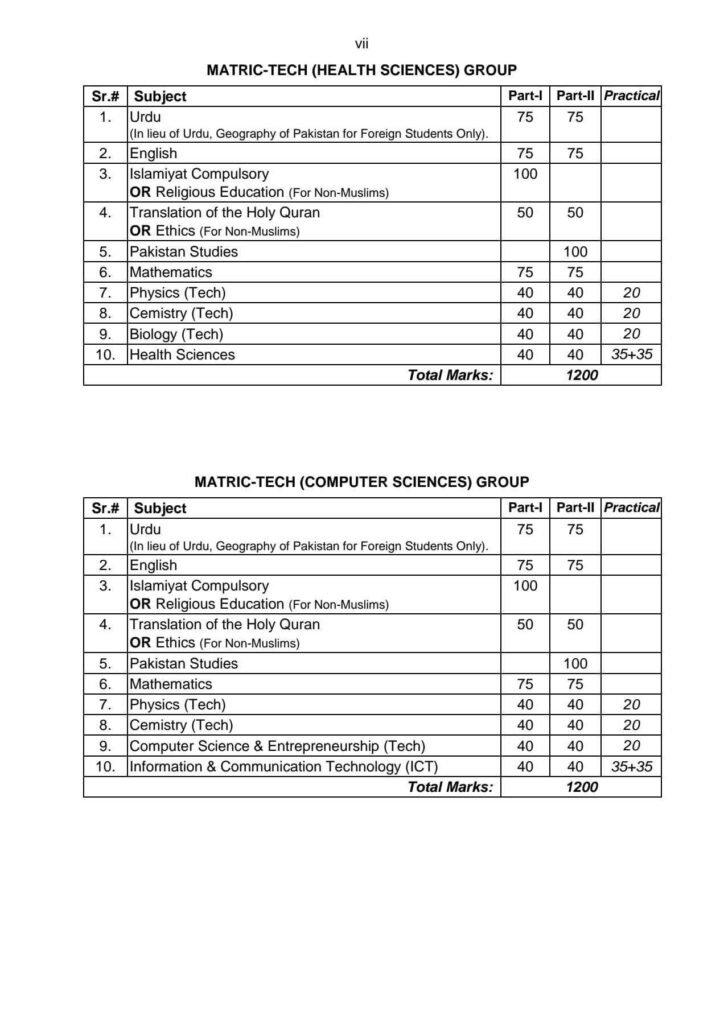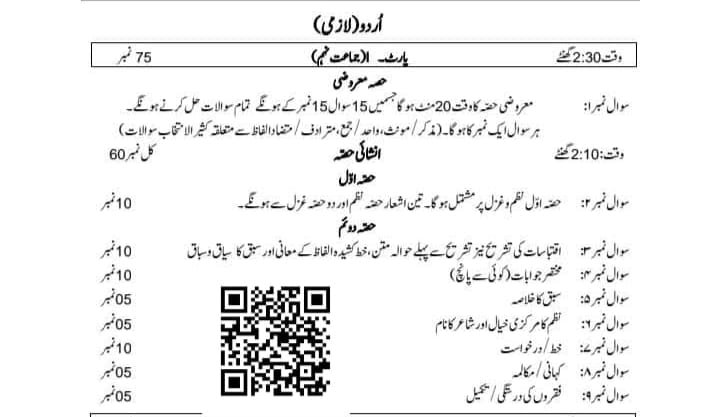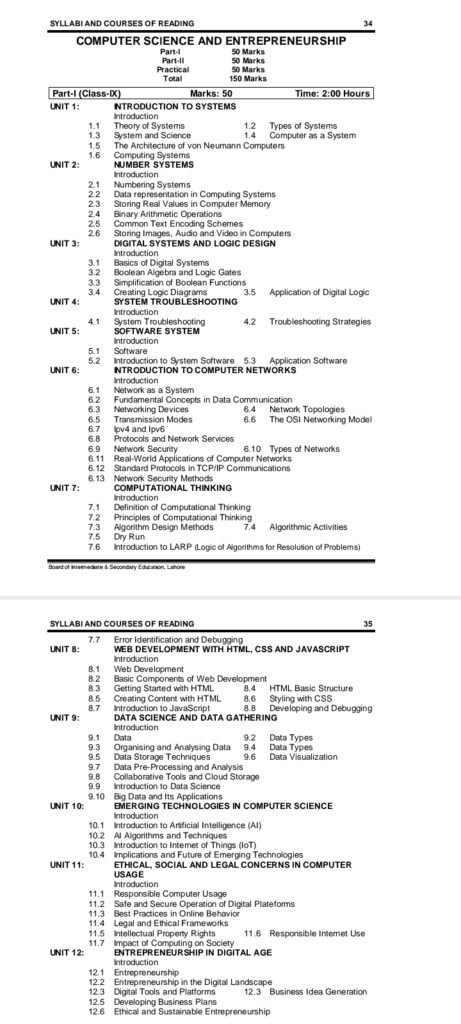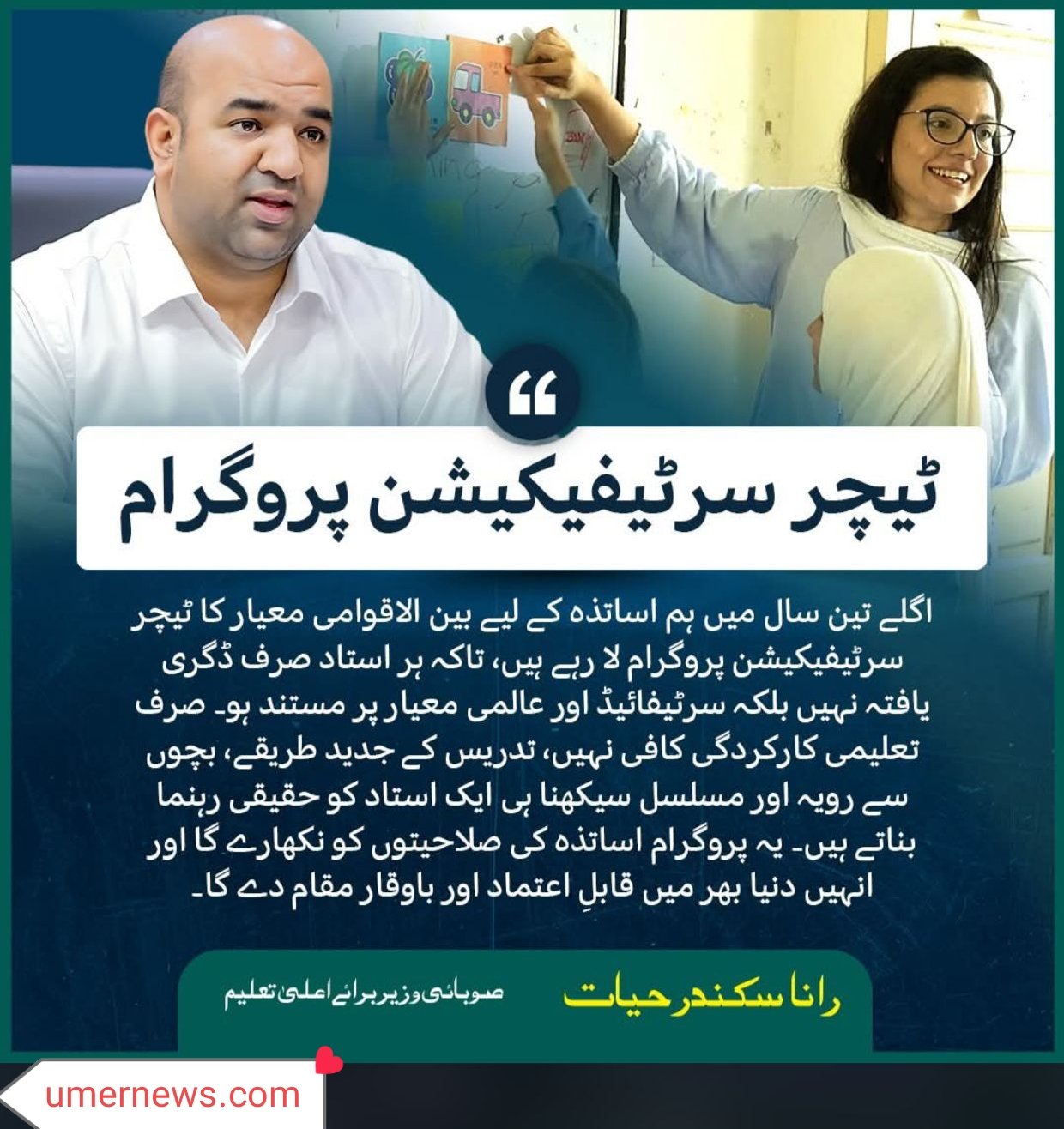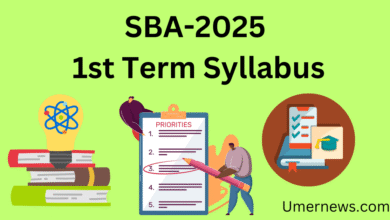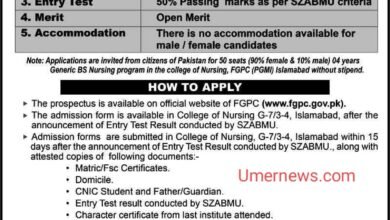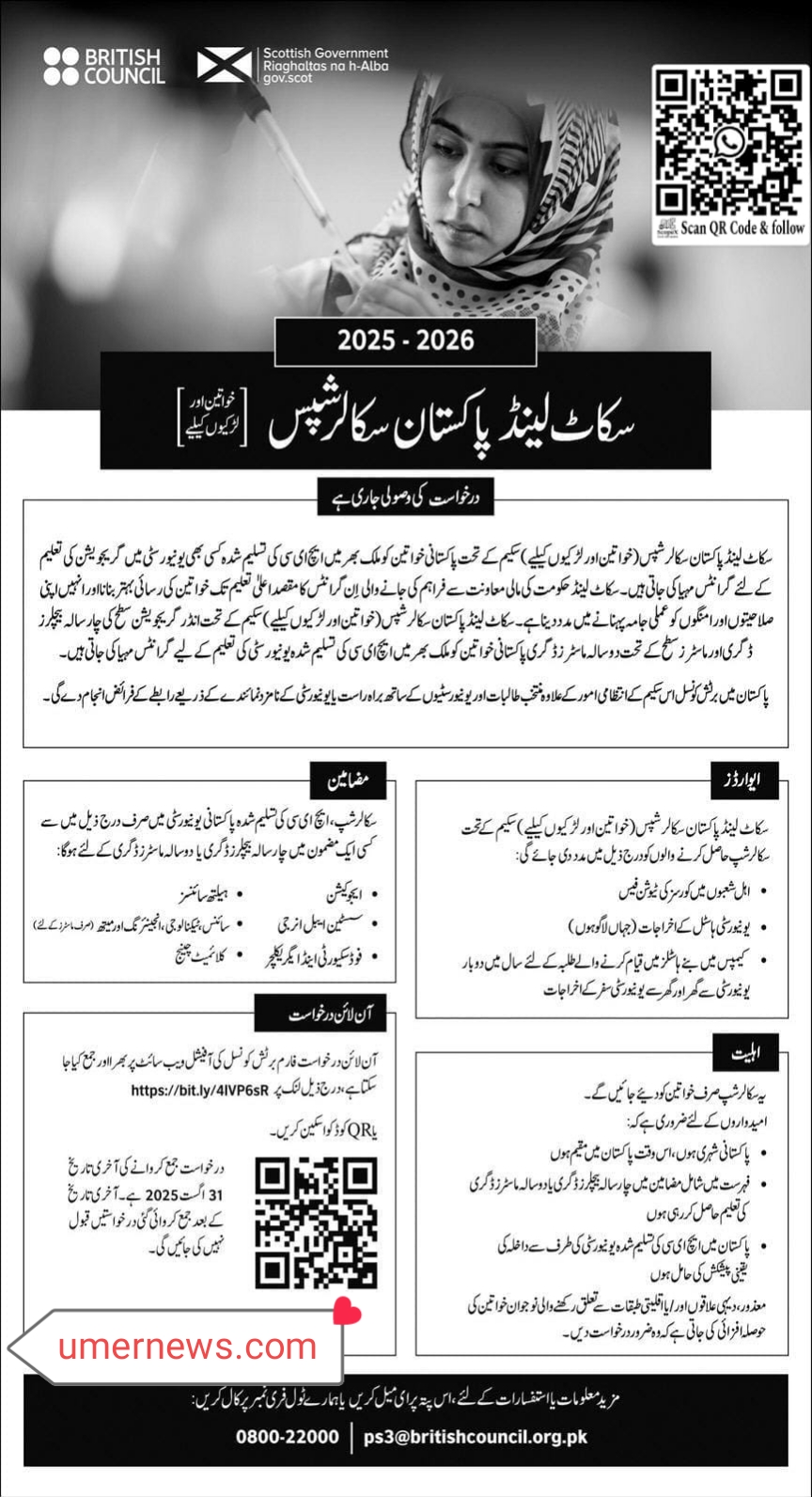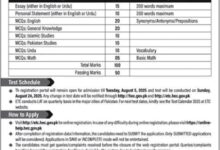SSC 9th and 10th Syllabus 2025-27
Contents
- 1 SSC 9th and 10th Syllabus 2025-27: A Complete Guide for Pakistan Students
- 1.1 Introduction
- 1.2 Overview of the SSC 9th and 10th Syllabus
- 1.3 Science Group: Subjects and Exam Pattern
- 1.4 Humanities Group: Flexibility and Options
- 1.5 Matric-Tech Groups: Vocational Training Focus
- 1.6 Dars-e-Nizami Group: Islamic Studies Focus
- 1.7 Preparation Tips for SSC Exams
- 1.8 FAQs
- 1.8.1 What is the total marks for SSC 9th and 10th exams?
- 1.8.2 Can foreign students opt for a subject other than Urdu?
- 1.8.3 What is the exam pattern for SSC subjects?
- 1.8.4 Are practical exams mandatory for all subjects?
- 1.8.5 How can I prepare for the Translation of the Holy Quran?
- 1.8.6 What are the elective subjects in the Humanities Group?
- 1.8.7 How many attempts are allowed for SSC exams?
- 1.9 Conclusion
SSC 9th and 10th Syllabus 2025-27: A Complete Guide for Pakistan Students
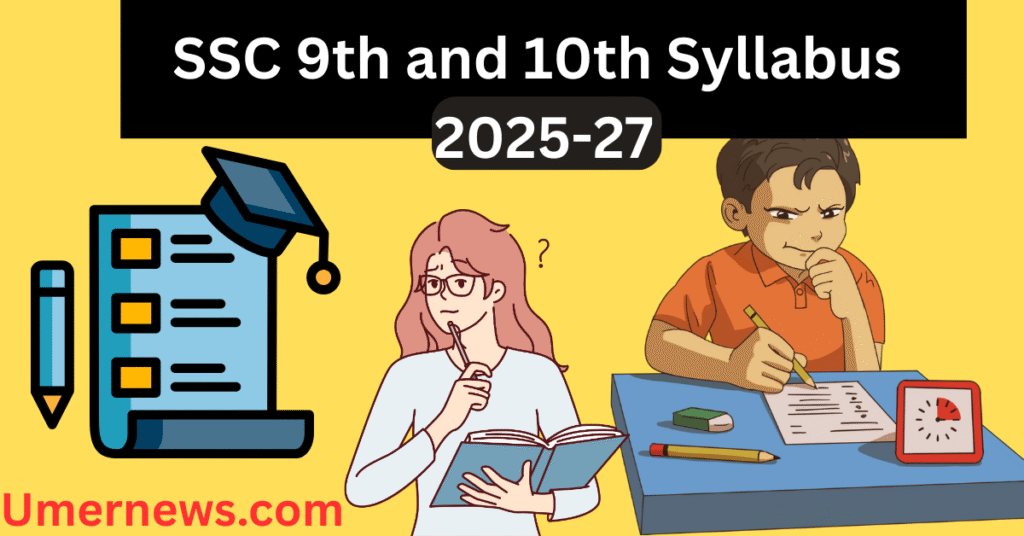
Discover the updated SSC 9th and 10th syllabus for 2025-27 in Pakistan. Learn key subjects, exam patterns, and tips to excel in your studies.
Introduction
The Secondary School Certificate (SSC) exams for 9th and 10th grades in Pakistan are a critical milestone for students. With the academic session 2025-27 approaching, the Punjab Boards Committee of Chairmen has released an updated SSC syllabus that balances academic rigor with practical skills. This guide dives into the revised scheme of studies, highlighting key subjects, exam patterns, and preparation strategies to help students succeed. Whether you’re a student, parent, or educator, understanding the SSC 9th and 10th syllabus is essential for academic success.
Overview of the SSC 9th and 10th Syllabus
The SSC syllabus for 2025-27, as outlined by the Board of Intermediate & Secondary Education, Lahore, is structured to cater to diverse academic streams: Science, Humanities, Matric-Tech, and Dars-e-Nizami groups. Each group offers a mix of compulsory and elective subjects, ensuring flexibility for students with varied interests.
Key Features of the Syllabus
- Part-System Structure: Subjects are divided into Part-I (Class 9) and Part-II (Class 10), with exams conducted separately.
- Total Marks: Each group has a total of 1200 marks, distributed across theory and practical components.
- Compulsory Subjects: Include Urdu (or Geography of Pakistan for foreign students), English, Islamiyat (or Ethics for non-Muslims), Translation of the Holy Quran, Pakistan Studies, and Mathematics.
- Elective Options: Students can choose from a wide range of electives, such as Physics, Chemistry, Biology, Computer Science, or technical subjects like Fashion Designing and Agriculture Sciences.
Science Group: Subjects and Exam Pattern
The Science Group is popular among students aiming for careers in engineering, medicine, or technology. Below is a breakdown of the subjects and their mark distribution:
| Subject | Part-I Marks | Part-II Marks | Practical Marks | Total Marks |
|---|---|---|---|---|
| Urdu / Geography of Pakistan | 75 | 75 | – | 150 |
| English | 75 | 75 | – | 150 |
| Islamiyat / Ethics | 100 | – | – | 100 |
| Translation of the Holy Quran | 50 | 50 | – | 100 |
| Pakistan Studies | – | 100 | – | 100 |
| Mathematics | 75 | 75 | – | 150 |
| Physics | 60 | 60 | 30 | 150 |
| Chemistry | 60 | 60 | 30 | 150 |
| Biology / Computer Science | 60 / 50 | 60 / 50 | 30 / 50 | 150 / 150 |
Exam Pattern
- Objective Section: 20% of the marks, consisting of multiple-choice questions (MCQs).
- Short Answers: 50% of the marks, requiring concise responses.
- Descriptive Answers: 30% of the marks, testing in-depth understanding.
- Practical Exams: Conducted separately after theory exams for science subjects.
Humanities Group: Flexibility and Options
The Humanities Group is designed for students interested in social sciences, arts, or vocational training. It includes compulsory subjects like Urdu, English, and Pakistan Studies, alongside two elective subjects from a diverse list, such as:
- Civics
- Economics
- Geography
- Art and Model Drawing
- Advanced Islamic Studies
Mark Distribution
- Compulsory subjects follow a similar structure to the Science Group.
- Elective subjects typically carry 75 marks each for Part-I and Part-II, with some subjects like Food & Nutrition including a 30-mark practical component.
Matric-Tech Groups: Vocational Training Focus
The Matric-Tech groups (Fashion Designing, Agriculture Sciences, Health Sciences, and Computer Sciences) emphasize practical skills. These streams are ideal for students seeking technical expertise for immediate employment or further studies.
Example: Fashion Designing Group
| Subject | Part-I Marks | Part-II Marks | Practical Marks | Total Marks |
|---|---|---|---|---|
| General Science (Tech) | 50 | 50 | – | 100 |
| Computer Science & Entrepreneurship | 40 | 40 | 20 | 100 |
| Communication Skills & Personal Grooming | 40 | 40 | 20 | 100 |
| Fashion Designing | 40 | 40 | 70 | 150 |
Dars-e-Nizami Group: Islamic Studies Focus
The Dars-e-Nizami Group caters to students interested in Islamic education. It includes subjects like Al-Quran, Al-Hadith, and Seerat-e-Taiba, alongside compulsory subjects. This group requires written permission from the Board Chairman for examination.
Preparation Tips for SSC Exams
To excel in the SSC 9th and 10th exams, students should adopt a strategic approach:
- Understand the Syllabus: Review the detailed syllabus for each subject to prioritize key topics.
- Practice Past Papers: Familiarize yourself with the exam pattern by solving previous years’ question papers.
- Focus on Practical Skills: For Science and Matric-Tech groups, dedicate time to mastering practical components.
- Time Management: Allocate study time for each subject, balancing theory and practical preparation.
- Use Quality Resources: Refer to prescribed textbooks by the Punjab Curriculum and Textbook Board for accurate content.
For additional study resources, check out Punjab Curriculum and Textbook Board (nofollow).
FAQs
What is the total marks for SSC 9th and 10th exams?
The total marks for SSC exams across all groups are 1200, split between Part-I and Part-II, including theory and practical components.
Can foreign students opt for a subject other than Urdu?
Yes, foreign students can choose Geography of Pakistan in lieu of Urdu, subject to Board approval.
What is the exam pattern for SSC subjects?
The exam pattern includes 20% MCQs, 50% short answers, and 30% descriptive answers, with practical exams conducted separately.
Are practical exams mandatory for all subjects?
Practical exams are mandatory only for subjects like Physics, Chemistry, Biology, and certain technical subjects, as specified in the syllabus.
How can I prepare for the Translation of the Holy Quran?
Focus on understanding key verses and their meanings, using resources recommended by the Punjab Curriculum and Textbook Board.
What are the elective subjects in the Humanities Group?
Elective subjects include Civics, Economics, Geography, Art and Model Drawing, and Advanced Islamic Studies, among others.
How many attempts are allowed for SSC exams?
Students can avail up to four examination opportunities within four years to improve their marks, as per Board rules.
Conclusion
The SSC 9th and 10th syllabus for 2025-27 offers a comprehensive framework for academic and vocational learning. By understanding the SSC syllabus, choosing the right group, and preparing strategically, students can achieve excellent results. Start your preparation early, leverage quality resources, and stay focused to excel in your SSC exams. Share your study tips in the comments below or explore more educational guides on our site!
Updated new Scheme of Studies for 9th ,10th class 2025-27 pdf file
